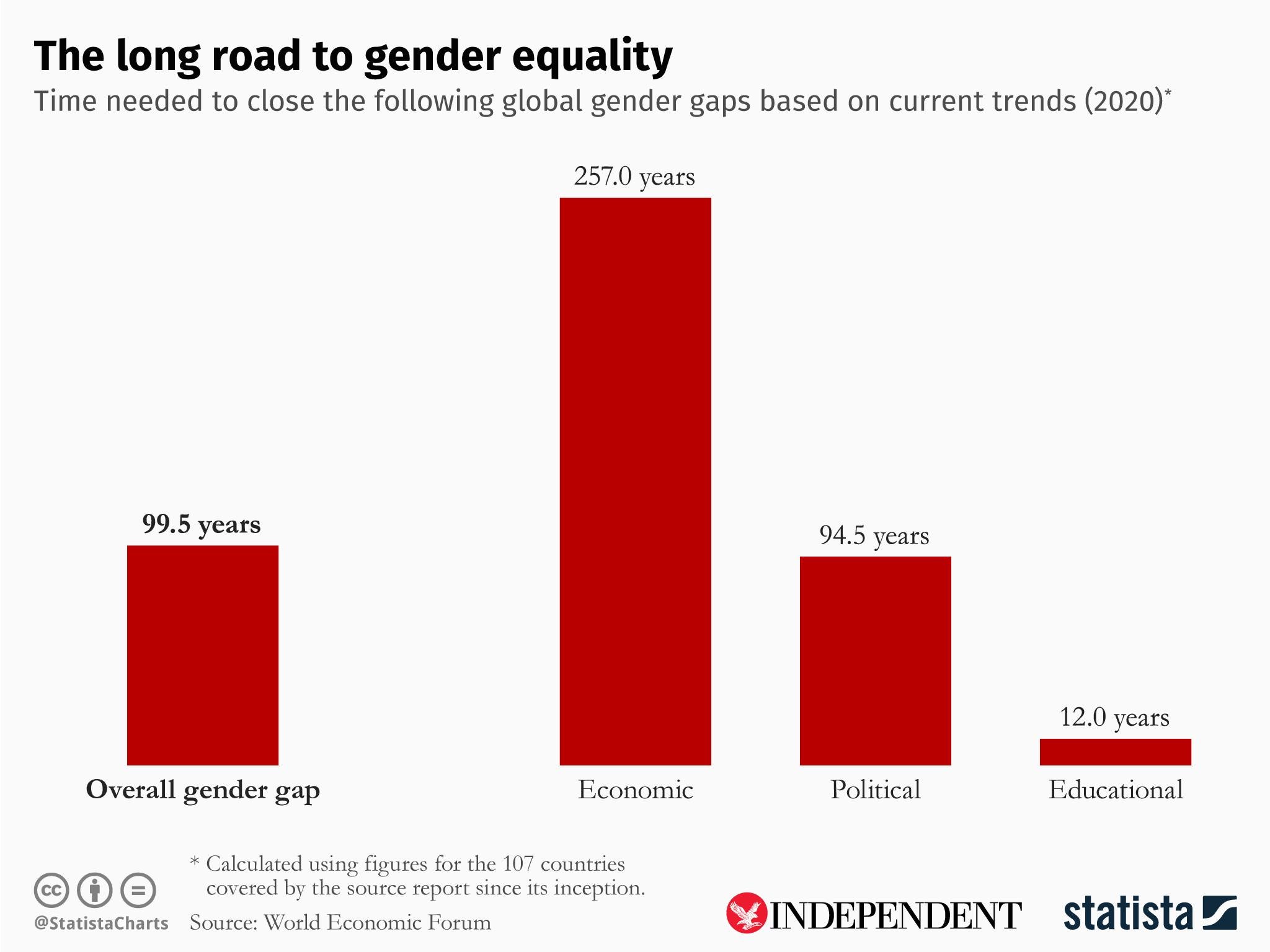Gender pay gap could take more than 250 years to close, report warns
Figure has increased from 202 years in 2018

Your support helps us to tell the story
From reproductive rights to climate change to Big Tech, The Independent is on the ground when the story is developing. Whether it's investigating the financials of Elon Musk's pro-Trump PAC or producing our latest documentary, 'The A Word', which shines a light on the American women fighting for reproductive rights, we know how important it is to parse out the facts from the messaging.
At such a critical moment in US history, we need reporters on the ground. Your donation allows us to keep sending journalists to speak to both sides of the story.
The Independent is trusted by Americans across the entire political spectrum. And unlike many other quality news outlets, we choose not to lock Americans out of our reporting and analysis with paywalls. We believe quality journalism should be available to everyone, paid for by those who can afford it.
Your support makes all the difference.Women could have to wait more than 250 years for economic parity, the World Economic Forum (WEF) has warned.
As part of its annual Global Gender Gap Report, the organisation measured gender equality for 153 countries across four different criteria, including politics, economics, education and health.
The WEF found that the economic gender gap will take approximately 257 years to close, even more than the 202 years it predicted in 2018.
“None of us will see gender parity in our lifetimes, and nor likely will many of our children,” the report states, before deeming its findings as “sobering”.
Last year, the WEF warned that unless more women were encouraged to enter fields such as science, technology and engineering, the gender gap could widen.
The latest report claims that there are large inequalities in almost all of the job sectors of the future, including cloud computing, engineering, data and AI, and product development.
Meanwhile, technological change is also having a disproportionate effect on the gap, with women more highly represented in positions hit hardest by automation such as retail.
Furthermore, the forum adds that not enough women are entering professions where wage growth is fastest.
“To get to parity in the next decade instead of the next two centuries, we will need to mobilise resources, focus leadership attention and commit to targets,” said Saadia Zahidi, head of the WEF Centre for the New Economy and Society
The report did contain some positive developments, adding that the global gender gap – which accounts for health, education and politics alongside economics – has improved, thanks in part to an increase in the number of women in politics.
However, women still hold just 21 per cent of ministerial positions worldwide and the WEF claims that the current trajectory for closing the global gender gap is 99.5 years.
Seven out of the top 10 countries that came closer to closing their gender gaps in 2019 were in Western Europe, with Iceland topping the list.
Top ten countries for gender equality:
- Iceland
- Norway
- Finland
- Sweden
- Nicaragua
- New Zealand
- Ireland
- Spain
- Rwanda
- Germany
In the report, the UK has slipped from 15th to 21st place, leaving it behind a few developing countries and most rich ones.
The WEF said the fall in 2019 in the UK's position partly reflected a decline in the number of women in ministerial positions.

Klaus Schwab, founder of WEF, said the report highlighted the growing urgency for action.
“At the present rate of change, it will take nearly a century to achieve parity, a timeline we simply cannot accept in today's globalised world, especially among younger generations who hold increasingly progressive views of gender equality,” he said.
Join our commenting forum
Join thought-provoking conversations, follow other Independent readers and see their replies
Comments